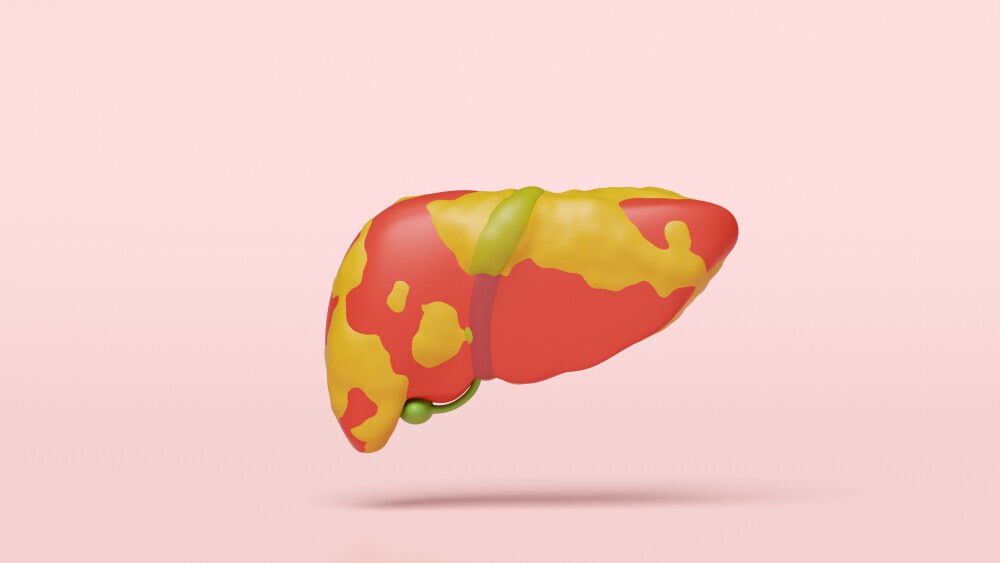Altimmune’s pemvidutide showed “class-leading signals” in non-invasive assessments and has “potentially best-in-class tolerability,” according to analysts at H.C. Wainwright.
Altimmune’s investigational peptide therapy pemvidutide significantly improved disease resolution rates and liver fibrosis in a mid-stage study of metabolic dysfunction-associated steatohepatitis, putting the Maryland biotech in a prime position in the hot liver disease space.
In a Tuesday note to investors, analysts at H.C. Wainwright & Co. estimated that pemvidutide could generate peak annual revenues of greater than $1 billion in metabolic dysfunction-associated steatohepatitis (MASH).
In the Phase IIb IMPACT study, data from which were presented at the recently concluded meeting of the American Association for the Study of Liver Diseases, 52% of patients treated with 1.8-mg pemvidutide achieved MASH resolution without worsening of fibrosis, one of the study’s primary endpoints. This improved slightly to 58% in those who were treated with the 1.2-mg dose. Only 20% of patients in the placebo arm hit that endpoint.
Pemvidutide also aced key secondary endpoints, eliciting significant improvements in liver stiffness, liver fat content, weight and corrected T1 relaxation time, a non-invasive measure used to assess liver disease. H.C. Wainwright took particular notice of these non-invasive measures, saying that pemvidutide delivered “class-leading signals” in these outcomes, particularly its induced improvements in T1 relaxation.
As for safety, only one patient in the pemvidutide groups dropped out due to side effects, as opposed to two of the placebo comparators. Serious adverse events were largely balanced between trial arms. Across all study groups, there were no serious complications that investigators deemed related to the assigned intervention.
These safety findings, according to H.C. Wainwright, point to “a potentially best-in-class tolerability profile” for pemvidutide.
Pemvidutide is a dual agonist of the GLP-1 and glucagon receptors—a mechanism that Altimmune is proposing for the treatment of MASH, alcohol use disorder and alcohol-associated liver disease. Activating the glucagon pathway helps lower liver fat levels and reduce inflammation and fibrosis, while its GLP-1 action suppresses appetite and triggers weight loss.
The biotech is expecting a 48-week readout from IMPACT in the fourth quarter and is scheduled for an end-of-Phase II meeting with the FDA before the end of the year.
With Pemvidutide approaching late-stage development, Altimmune joins some of the industry’s heaviest hitters in the red-hot MASH field. In August, the FDA approved Novo Nordisk’s blockbuster weight-loss drug Wegovy for the disease, which the pharma celebrated by buying Akero Therapeutics for $5.2 billion a few weeks later. Akero owns efruxifermin, which in January showed a 24% liver fibrosis improvement versus placebo. Right behind Novo is Roche, which made its own $3.5 billion MASH play by acquiring 89bio and its late-stage asset pegozafermin.






